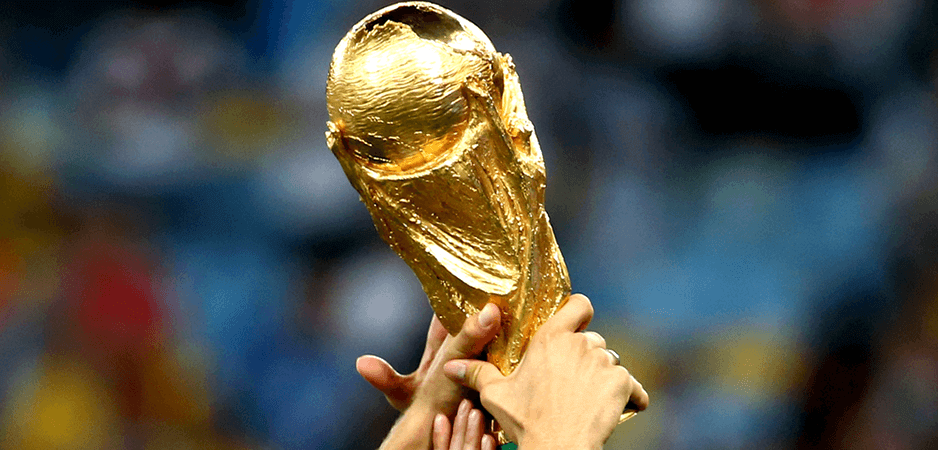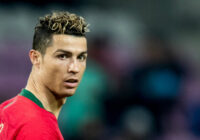Football is a simple and beautiful game that gives joy to billions around the world, but it needs urgent reforms.
The English have bequeathed the world many legacies. Some of them, like Israel-Palestine, India-Pakistan and Northern Ireland, tend not to be pretty. Football, on the other hand, is the one English export that has literally taken the world by storm.
From June 14, the 2018 FIFA World Cup in Russia will bring many countries to a standstill. Brazil, a nation with an incorrigibly corrupt political elite, is limping back to normalcy after a 10-day strike by truck drivers that paralyzed the country. Jair Bolsonaro, a far-right leader, is leading in the polls. Football is the only source of hope for beleaguered Brazil. Its superstars are playing well, egging each other and having a good time. Perhaps they will atone for the disgrace of the last tournament in 2014 when they lost 7-1 to the Germans.
Like Brazil, many other countries are dreaming of glory. With the Premier League having the fattest footballing wallets in the world, England is making customary noises about winning the World Cup for the first time since 1966. Tiny Belgium has an embarrassment of riches from bull-like Romelu Lukaku, twinkle-toed Eden Hazard and eagle-eyed Kevin de Bruyne all in the same team. It too is hoping.
So is Egypt. This land of pharaohs last made it to the World Cup in 1990. This year they are back with the best player in the English Premier League, the Egyptian king, Mo Salah, running down the wing. The Liverpool forward is fast-recovering from his UEFA Champions League final injury to boost the spirits of his long-suffering countrymen, even as they continue to suffer under President Abdel Fattah al-Sisi’s repressive regime.
Yet the World Cup is largely the preserve of the traditional powers of football. Germany, the current holders, play with such metronomic precision that their team is termed Die Mannschaft, the man machine. Spain’s coach has been fired just a day before the tournament kicks off, but they still have great players schooled in the tiki-taka philosophy that has brought them great success in the recent past. Arguably, France has the most exciting young team with Kylian Mbappé, Antoine Griezmann and Ousmane Dembélé offering an embarrassment of riches in attack.
Of course, there are two more teams: Lionel Messi’s Argentina and Cristiano Ronaldo’s Portugal. The land of Eva Perón and Diego Maradona has recently been a persistent bridesmaid at international tournaments. This has made some question Messi’s commitment, performance and nerve when playing for his country. On the other hand, the land of Vasco da Gama and Eusébio won a gritty final at the 2016 UEFA European Championship. Despite Ronaldo limping off injured, the Portuguese beat the favored French on their home turf. The Adonis of the Portuguese team is coming to the World Cup after winning a third straight Champions League title with Real Madrid, indubitably dreaming of more glory.
BEAUTY, JOY AND UGLY UNDERBELLY
Even countries that are not in the FIFA World Cup will be following it over the next four weeks. India is atrociously awful at football and sport. With over 1.3 billion people, its sporting prowess is perhaps the most pathetic on the planet. Yet any Google search throws up Indian newspapers offering expert commentary on the forthcoming World Cup. The same is true for China, another footballing pygmy that is trying hard to grow in stature by buying world-class players in the autumn of their careers.
As Pelé put it memorably, football is the beautiful game. It is the global game. Even famously insular Americans who are besotted with baseball, basketball and the variant of rugby-with-helmets that only they call football, will tune in to the FIFA World Cup this summer. That is the power of the beautiful game.
At its best, the World Cup has conjured up magical moments that people continue to watch today. Young Pelé’s goal in the 1958 final or his assist for Carlos Alberto’s goal in the 1970 final continue to delight people around the world. Millions still watch with bated breath Diego Maradona’s goal against England in 1986 as a moment when the footballing gods smiled on this diminutive genius. Andres Iniesta’s celebration after his extra-time goal in the 2010 final is legendary not only because of the historic importance of his goal, but also because of the tribute to the late Dani Jarque handwritten on his undershirt.
Over the decades, the World Cup has given thousands of moments of joy to billions. At its best, the sport has been a symbol of athletic prowess, artistic expression and scintillating teamwork. In 1970, a repressive military dictatorship ruled Brazil with an iron hand. Mário Zagallo’s team played with a freedom and poetry that gave the country a vision of a different future. In 1974, the Netherlands may have lost in the final, but they introduced “total football” to the rest of the world. In 2006, Germany proved to be the perfect host and forged a new identity as a nation on the global stage.
In contrast with 2006, demagogues are on the ascendant today. Inequality is increasing, repression is rising and climate change is accelerating. FIFA has suffered a string of scandals. The US, along with Canada and Mexico, has won the bid to host the 2026 World Cup after Donald Trump’s repeated threats to other nations. The 2022 World Cup in Qatar has been dogged by one controversy after another. The host of this year’s World Cup is none other than Vladimir Putin’s Russia, and even the lovable Salah has been criticized for a photo with Chechen strongman Ramzan Kadyrov.
Football is a simple game and a joyous sport. Yet it is beset with many of the challenges that the world faces today. The amount of money in the industry is now obscene. Big corporations, corrupt federations and scheming strongmen take great advantage of the global popularity of the sport. Even as the World Cup begins, it is time to kick off reforms in the beautiful game.
The views expressed in this article are the author’s own and do not necessarily reflect Fair Observer’s editorial policy.
Photo Credit: A.Ricardo / Shutterstock.com
Support Fair Observer
We rely on your support for our independence, diversity and quality.
For more than 10 years, Fair Observer has been free, fair and independent. No billionaire owns us, no advertisers control us. We are a reader-supported nonprofit. Unlike many other publications, we keep our content free for readers regardless of where they live or whether they can afford to pay. We have no paywalls and no ads.
In the post-truth era of fake news, echo chambers and filter bubbles, we publish a plurality of perspectives from around the world. Anyone can publish with us, but everyone goes through a rigorous editorial process. So, you get fact-checked, well-reasoned content instead of noise.
We publish 2,500+ voices from 90+ countries. We also conduct education and training programs
on subjects ranging from digital media and journalism to writing and critical thinking. This
doesn’t come cheap. Servers, editors, trainers and web developers cost
money.
Please consider supporting us on a regular basis as a recurring donor or a
sustaining member.
Will you support FO’s journalism?
We rely on your support for our independence, diversity and quality.






